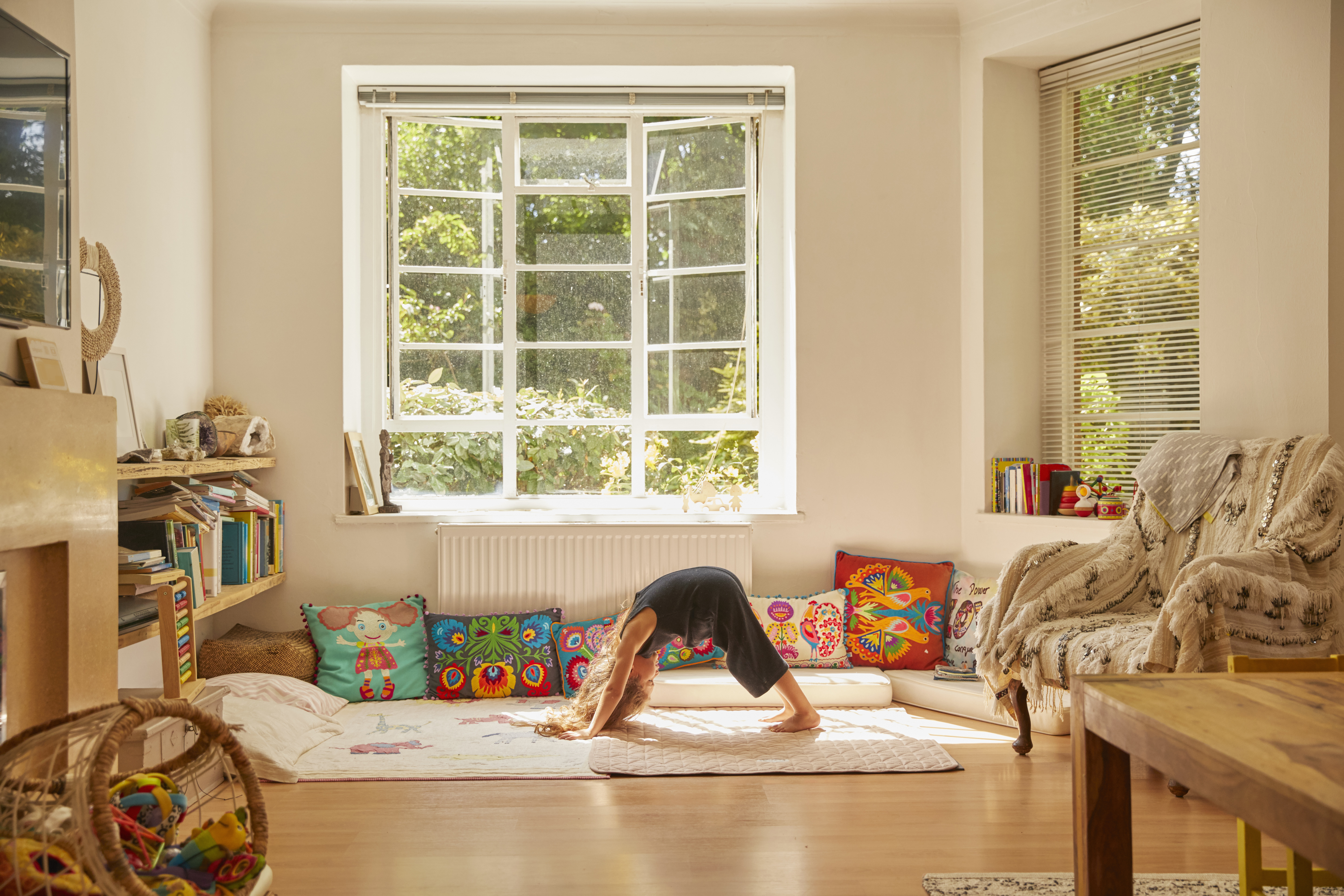I have always imagined that Paradise will be a kind of library.
The Essential Elements of a Family Reading Space
The perfect reading environment starts with comfort, but it goes far beyond just having a cozy chair. Light plays a crucial role – you’ll want a combination of natural daylight when possible and warm, adjustable lighting for evening reading sessions. Choose a quiet corner of your home away from the main traffic flow, where family members can focus without constant interruptions.
Consider temperature too – a slightly warm room tends to be most conducive to relaxed reading. Add soft textures through pillows, throws, and perhaps a plush rug. The goal is to create a space that feels like a warm hug, inviting everyone to settle in and stay awhile.
I have made a handy list of items that will totally bring your reading space to the next level, and it’s yours free by filling in your email address below!
Want a free reading space checklist?
Sign up below to receive my free reading space checklist. You will also receive emails from me about reading, books, and family.
So what do you need to have in your reading nook?
- Lighting (overhead, natural, portable)
- Seating (chairs, pillows, bean bag chairs, etc.)
- Book Storage (shelves, baskets, ledges, bins)
- Other furniture (desk, table, drink holder, rugs)
- Accents (audio player, essential oil or candles, plants, pillows, blankets, clock, twinkle lights, coloring supplies, puzzles)

Creating Space for Different Reading Styles
Every family member has their own reading preferences, and your space should accommodate these differences. While your teenager might prefer to sprawl on floor cushions, your toddler might need a small table for board books, and you might want a supportive reading chair. Just last week, my kids spent an entire rainy afternoon constructing an elaborate pillow fort complete with lights and turning it into a “reading castle” — sometimes the best reading spaces are the ones our children create themselves!
In our home, we’ve found that the living room couch works best for family reading time. I sit there, my daughter lounges on another chair, and my son is either snuggled into me or drawing pictures on the floor. For my personal reading time, I enjoy a corner of my bedroom or a comfy chair by my office library.
Set up different zones within your reading area:
- A comfortable adult-sized chair or loveseat for parent-child reading
- Floor cushions or bean bags for casual reading
- A small table and chairs for younger children
- A cozy window seat if possible (natural light is a reader’s best friend!)
- Storage solutions that display books invitingly

Organizing Your Family Library
Books should be both accessible and appealing. Think like a librarian – organize books in a way that makes sense for your family. For younger children, face books outward so covers are visible. Group books by reading level, topic, or family member preferences.
Keep current reads within easy reach, and rotate books seasonally to maintain interest. Don’t forget to include magazines, comics, and other reading materials – variety encourages reading exploration!

Setting the Mood
The atmosphere of your reading space matters as much as the physical elements.
Consider adding:
- Soft background music for shared reading times
- Essential oils or candles with focusing scents like lavender or vanilla
- Plants to add life and improve air quality
- Personal touches like family reading photos or favorite book quotes
- A special reading time lamp or twinkly lights for magic
Making it Screen-Free
One of the biggest challenges in creating an effective reading environment is managing digital distractions. Designate your reading space as a screen-free zone – no phones, tablets, or televisions. This boundary helps everyone transition into “reading mode” more easily.
Seasonal Refreshes
Keep your reading space exciting by updating it with the seasons. Add cozy blankets and warm lighting in winter, fresh flowers and bright cushions in spring. These small changes help maintain interest and create special memories throughout the year.

Tips for Small Spaces
Don’t have a dedicated room for reading? No problem! Even a corner of your living room or a hallway nook can become a special reading space. Use furniture arrangement to create a sense of separation, or hang a curtain to define the area. The key is making it feel special, no matter the size.
Making it Work for Your Family
Remember, the perfect reading environment looks different for every family. Observe how your family naturally gravitates toward reading – do they prefer to read together or separately? Morning or evening? These patterns should guide how you set up and use your space.
Sometimes the most magical reading moments happen in unexpected places. Whether it’s building impromptu pillow forts, dragging chairs into sunny patches, or creating seasonal reading tents in the backyard, let your family’s creativity guide how you use your space. The most important thing isn’t having the perfect Instagram-worthy reading nook – it’s creating spaces where your family feels drawn to spend time with books together.
As one of my favorite reading quotes reminds us, “Reading gives us someplace to go when we have to stay where we are.”
I’d love to hear about your family reading spaces! What makes them special? Share your ideas in the comments below, and don’t forget to download my free Family Reading Space Checklist to help you create your own perfect reading environment.
Want a free reading space checklist?
Sign up below to receive my free reading space checklist. You will also receive emails from me about reading, books, and family.




